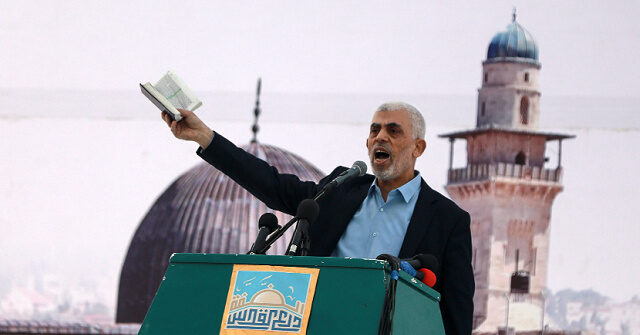The recent death of Hamas leader Yahya Sinwar during an Israeli military operation in Rafah has drawn significant attention, particularly because a passport belonging to a teacher employed by the United Nations Relief and Works Agency for Palestine Refugees in the Near East (UNRWA) was reportedly found on his body. The passport, belonging to Rafah native Hani Zourob, who recently relocated to Egypt, raises questions about its authenticity, with initial reports uncertain whether it was a genuine document or a counterfeit. The discourse around this finding has also included confusion regarding its ownership, with early speculation suggesting it might have belonged to one of Sinwar’s bodyguards, who supposedly was Zourob himself.
The implications of this incident extend beyond the personal narratives, shedding light on the controversial relationship between UNRWA and militant organizations such as Hamas. The Israeli Defense Forces (IDF) have consistently maintained that Hamas operatives exploit UNRWA facilities, using schools and hospitals as conduits for weapon storage and operational planning. This intertwining of humanitarian aid and military activity complicates the traditional understanding of neutral aid organizations, sparking widespread criticism of UNRWA and its employing practices.
Allegations against UNRWA gained further intensity in the wake of horrific events on October 7, which saw numerous Israeli civilians killed and others subjected to violent acts. Israel accused certain UNRWA employees of participating in these atrocities, providing evidence that included audio recordings where employees allegedly expressed approval of the violence. The resultant scandal led to several nations, including the United States, suspending their financial support for the agency, demonstrating how deeply the accusations affected the perception of UNRWA on an international scale.
After considerable scrutiny, a UN investigation concluded that nine employees of UNRWA might have been involved in the October 7 assaults, leading to their dismissal. However, this action failed to appease Israeli authorities, who deemed it insufficient given the gravity of the accusations. Israeli officials have been vocal in their condemnation of the agency, with an IDF spokesperson openly criticizing UNRWA and calling for a reevaluation of its role in the humanitarian landscape, asserting that the organization has compromised its integrity through its alleged ties to terrorism.
While several countries that had paused their funding to UNRWA have since resumed financial contributions in response to the worsening crisis in Gaza, the United States remains a notable exception. U.S. funding is curtailed until March 2025 due to legislative measures following the allegations against UNRWA. Despite this prohibition, there is ongoing pressure from humanitarian groups urging Congress to reconsider the freeze, emphasizing the dire need for aid in the region.
In summary, the intertwined narratives of Yahya Sinwar’s death and the allegations surrounding UNRWA present a complex and troubling panorama for humanitarian efforts in conflict regions. The discovery of a UNRWA passport on Sinwar’s body highlights deeper issues regarding the agency’s operations, its personnel, and its intersections with armed groups like Hamas. As the situation unfolds, the international community continues to grapple with how to effectively balance necessary humanitarian assistance with accountability and oversight in an increasingly perilous environment.

